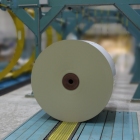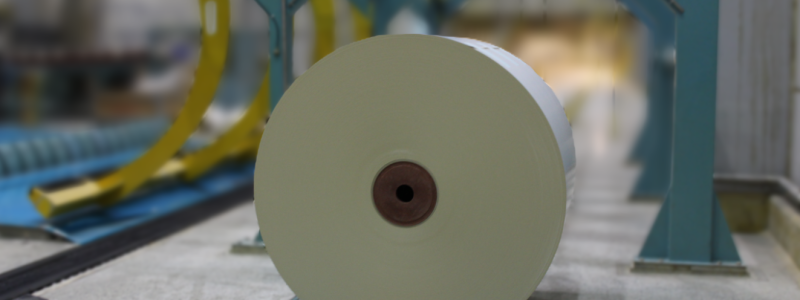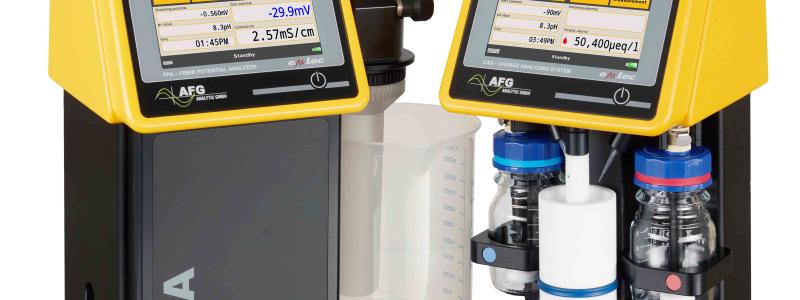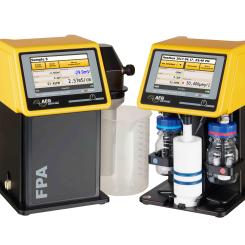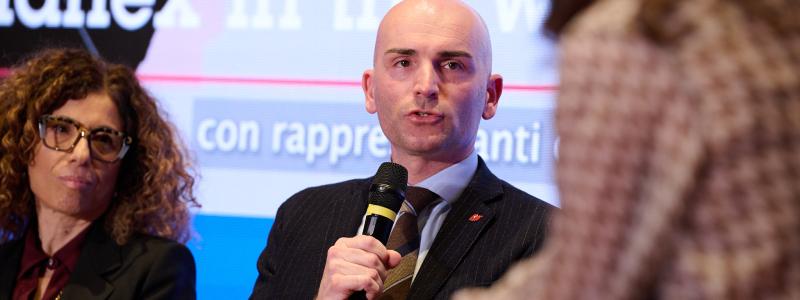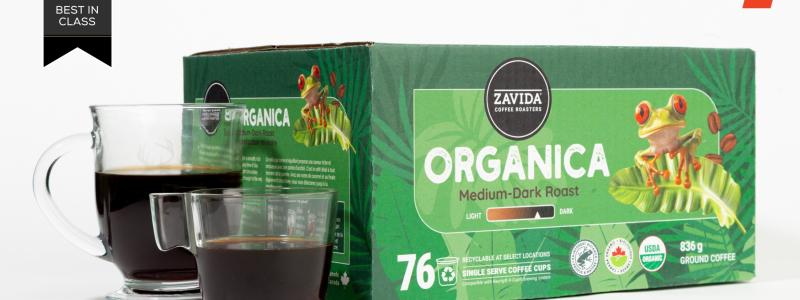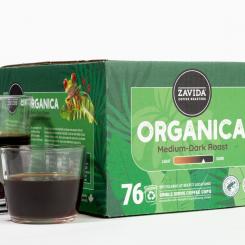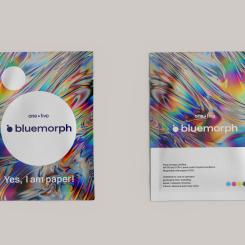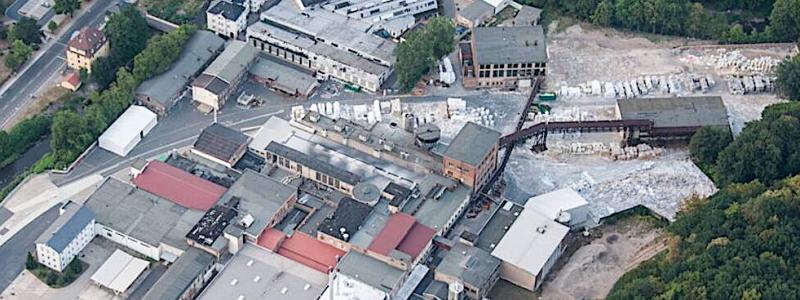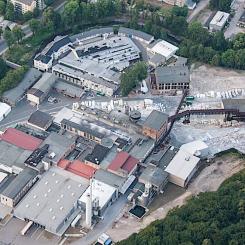The growth of the Packaging Automation Solutions Market is driven by increasing demand for operational efficiency, reduced labor costs, and improved packaging consistency across industries. Rising adoption of advanced robotics, IoT-enabled systems, and smart packaging technologies is further fueling market expansion. Additionally, the growing need for sustainable and eco-friendly packaging solutions, coupled with rapid industrialization and e-commerce growth, is expected to significantly boost demand for automated packaging systems during the forecast period.
The Packaging Automation Solutions Market was valued at USD 5.2 Billion in 2024 and is projected to reach USD 9.8 Billion by 2033, growing at a steady CAGR of 8.5% from 2026 to 2033.
This growth is fueled by increasing demand for efficiency, cost optimization, and sustainability across industries such as food & beverage, pharmaceuticals, e-commerce, and consumer goods. Rising adoption of robotics, smart technologies, and eco-friendly packaging solutions is further driving market expansion worldwide.
Key companies profiled
Rockwell Automation, Siemens AG, ABB Ltd., Schneider Electric, Mitsubishi Electric Corporation, FANUC Corporation, KUKA AG, Omron Corporation, Bosch Packaging Technology, and Coesia S.p.A.
Growing demand for operational efficiency
One of the key drivers of the Packaging Automation Solutions Market is the rising need for operational efficiency across multiple industries. Companies are increasingly shifting from manual packaging to automated solutions to reduce errors, save time, and optimize production costs. Automated systems offer higher speed and precision, ensuring consistency in packaging that manual methods often lack. By integrating robotics, sensors, and AI-based technologies, businesses can achieve significant improvements in productivity. Additionally, automation enables better scalability, allowing manufacturers to handle varying production volumes without compromising quality. This growing need for streamlined operations is particularly evident in sectors like food & beverage, pharmaceuticals, and consumer goods, where large-scale production requires quick and reliable packaging. As businesses face mounting pressure to improve turnaround times and meet consumer expectations, the adoption of packaging automation solutions is accelerating, making efficiency a critical factor in driving market growth worldwide.
Adoption of Robotics and Smart Technologies
The Packaging Automation Solutions Market is witnessing strong adoption of robotics, artificial intelligence, and smart technologies. Robotics systems are increasingly used for tasks like pick-and-place, palletizing, labeling, and quality inspection, reducing reliance on human labor. AI-driven solutions help optimize packaging lines by predicting equipment failures, reducing downtime, and improving throughput. Smart packaging machines equipped with IoT capabilities provide real-time data insights, helping manufacturers monitor performance, energy use, and material consumption. These advanced systems also enable predictive maintenance, reducing operational costs and extending equipment lifecycles. The integration of robotics enhances flexibility, enabling packaging lines to adapt quickly to different product types and sizes without lengthy reconfiguration. This adaptability is particularly valuable in industries with diverse product portfolios. With Industry 4.0 initiatives gaining momentum globally, the role of robotics and smart technologies in packaging automation is expanding rapidly, positioning them as essential tools for modern manufacturing environments.
Expansion of E-Commerce and Retail Sectors
The explosive growth of e-commerce and retail sectors is significantly boosting the demand for packaging automation solutions. Online shopping has created an urgent need for efficient, accurate, and scalable packaging processes to meet rising consumer expectations for faster deliveries and safe product handling. Automated systems provide the speed and precision required for high-volume order fulfillment, reducing packaging errors and improving customer satisfaction. Retailers and logistics companies are adopting advanced packaging lines to handle a wide variety of products, ranging from fragile goods to bulk shipments. Furthermore, automated labeling and sorting systems ensure accurate tracking and delivery, minimizing supply chain disruptions. E-commerce companies are also investing in sustainable and customized packaging solutions to improve brand value while adhering to environmental regulations. As global online sales continue to rise, the role of packaging automation in ensuring operational efficiency, cost-effectiveness, and timely delivery is becoming increasingly critical for business success.
Rising Emphasis on Sustainability and Eco-Friendly Packaging
Sustainability is a major trend influencing the Packaging Automation Solutions Market. With increasing consumer awareness and stricter government regulations on packaging waste, industries are shifting toward eco-friendly materials and sustainable practices. Automated systems play a vital role by reducing material wastage, optimizing resource use, and enabling recyclable packaging. Many automation solutions are designed to handle biodegradable, lightweight, and alternative packaging materials efficiently. Additionally, companies are adopting smart machines that minimize energy consumption and carbon emissions, aligning with global sustainability goals. The ability of automation to integrate precision cutting, filling, and sealing reduces excess use of plastics and other harmful materials. In addition, automated packaging allows businesses to design compact and right-sized packaging, further reducing waste and shipping costs. As sustainability becomes a core business priority, packaging automation solutions are positioned as essential enablers, allowing companies to meet environmental targets while maintaining productivity and cost efficiency.
Strong Demand from Food & Beverage Industry
The food and beverage industry represents one of the largest end-use sectors driving the Packaging Automation Solutions Market. Rising consumption of processed, packaged, and ready-to-eat foods has created the need for faster and more hygienic packaging systems. Automation ensures consistency, compliance with food safety regulations, and extended shelf life of products through efficient sealing and protective packaging. High-speed automated machines handle diverse packaging formats, including bottles, pouches, cartons, and cans, allowing manufacturers to cater to changing consumer preferences. Moreover, smart automation systems are designed to minimize contamination risks by reducing direct human contact, which is crucial for maintaining hygiene. The industry is also adopting robotics for labeling, coding, and sorting to handle growing product variations. With consumers demanding convenience, freshness, and safety in food packaging, the reliance on automated systems continues to grow, positioning the food and beverage sector as a major contributor to market expansion worldwide.
Technological Advancements and Industry 4.0 Integration
The rise of Industry 4.0 is transforming the Packaging Automation Solutions Market by integrating technologies like IoT, cloud computing, and machine learning into packaging operations. These advancements enable real-time data collection, predictive analytics, and seamless communication between machines, resulting in smarter and more connected packaging systems. Automation software powered by AI helps optimize workflows, reduce downtime, and improve overall equipment efficiency. Digital twins are increasingly used to simulate packaging processes, allowing companies to test configurations virtually before implementation. Moreover, cloud-based monitoring provides manufacturers with remote access to performance data, ensuring greater control over global operations. Augmented reality (AR) and virtual reality (VR) tools are also being applied for training and equipment maintenance, improving workforce efficiency. As companies invest in modernizing their production facilities, Industry 4.0-driven packaging automation solutions are becoming indispensable for achieving higher competitiveness, agility, and innovation in a rapidly evolving business environment.
Cost Reduction and Workforce Optimization
One of the primary benefits of packaging automation solutions is the potential for significant cost reduction and workforce optimization. Automation reduces dependency on manual labor, which helps businesses overcome challenges related to rising wages, labor shortages, and human errors. By minimizing repetitive and physically demanding tasks, automation not only improves efficiency but also enhances workplace safety. Additionally, automated systems help businesses save on packaging material costs by optimizing usage and reducing wastage. Companies can also achieve faster turnaround times, which lowers operational expenses and boosts profitability. Workforce optimization allows employees to focus on higher-value tasks, such as quality control, system monitoring, and innovation, rather than repetitive packaging activities. This reallocation of labor resources improves job satisfaction and overall productivity. As companies continue to seek ways to maintain competitiveness in cost-sensitive industries, packaging automation solutions provide a sustainable and scalable pathway to operational and financial efficiency.
Regional Growth and Emerging Markets
Regional dynamics play a significant role in shaping the growth trajectory of the Packaging Automation Solutions Market. North America and Europe dominate the market due to early adoption of advanced technologies, strong infrastructure, and stringent regulations that encourage sustainable practices. However, Asia-Pacific is emerging as the fastest-growing region, driven by rapid industrialization, urbanization, and booming e-commerce activity in countries like China, India, and Southeast Asia. The growing middle-class population and rising demand for packaged food, pharmaceuticals, and consumer goods are fueling adoption of automation systems. Latin America and the Middle East are also witnessing increasing investments in automated packaging to enhance supply chain efficiency and meet global export standards. With globalization pushing companies to optimize operations and stay competitive, emerging markets present lucrative opportunities for packaging automation solution providers. Regional growth patterns indicate a steady expansion of automation across industries, solidifying its role as a critical enabler of global manufacturing progress.
Geographic Dominance
North America holds a significant share of the Packaging Automation Solutions Market, driven by advanced manufacturing infrastructure, strong adoption of robotics, and stringent regulatory standards emphasizing safety and sustainability. Europe follows closely, with countries like Germany, France, and the UK leading investments in Industry 4.0-enabled packaging systems and eco-friendly technologies. Both regions benefit from mature e-commerce and food & beverage industries, which demand high-speed, reliable automation. Asia-Pacific, however, is projected to witness the fastest growth during the forecast period. Rapid industrialization, rising consumer spending, and booming e-commerce activities in China, India, and Southeast Asia are fueling adoption of automated packaging systems. Additionally, the region's growing middle-class population and expanding manufacturing base are creating significant opportunities for automation providers. Meanwhile, Latin America and the Middle East are gradually adopting automated solutions to improve efficiency, reduce costs, and meet global export standards, positioning them as emerging markets with long-term growth potential.
Packaging Automation Solutions Market Key Players Shaping the Future
Leading players shaping the future of the Packaging Automation Solutions Market include Rockwell Automation, Siemens AG, ABB Ltd., Schneider Electric, Mitsubishi Electric Corporation, FANUC Corporation, KUKA AG, Omron Corporation, Bosch Packaging Technology, and Coesia S.p.A.
These companies are focusing on advancing robotics, smart sensors, and AI-enabled systems to enhance efficiency, flexibility, and sustainability in packaging operations. Strategic collaborations, product innovations, and global expansions are enabling these players to strengthen their market presence and address the rising demand across industries.


